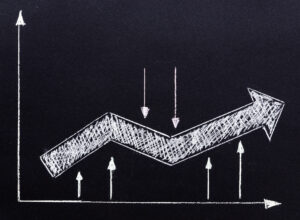In the medical sciences, groundbreaking research often lives and dies in isolated silos. That is why Rohit Kadam, PhD, regards himself not simply as an inventor of complex medical tools but as a translator of molecular research. His role is to bridge the gap between academic studies and real-world healthcare. Dr. Kadam’s work in molecular diagnostics brings science to life where it matters most: in frontline labs and clinicians’ hands.
Making Sure Science Leaves the Silo
Trained as a microbiologist in both India and the United States, Dr. Kadam quickly realized that he wasn’t content with leaving his molecular biology research in the lab. “I realized I didn’t want to publish papers no one used — I wanted to build tools people could trust,” he says. The COVID-19 pandemic served to crystallize his commitment to real-world praxis.
As the coronavirus strained healthcare systems worldwide, Dr. Kadam worked urgently to help Azure Biosystems commercialize Quantitative Polymerase Chain Reaction (qPCR) instruments. qPCR technology determines how much DNA or RNA is present in a sample during a PCR test. Because these molecular diagnostics provide a way to accelerate the findings on a COVID test, demand for them shot up fast during the pandemic.
A Trial by Fire
For Dr. Kadam, the challenge with bringing qPCR tools to the market wasn’t just speed but scale. “We weren’t just racing the virus,” he explains. “We were racing the barriers that kept good science from reaching the people.” To address the global diagnostic shortage, Dr. Kadam brought not just scientific but strategic expertise to the table.
As a product manager at Azure Biosystems, he focused on making sure new diagnostics were technically sound and aligning them with how labs actually work. This is design informed by empathy: “I ask, how will this perform in a rural hospital, under pressure, with limited staff? That’s where impact lives.”
Pursuing the Next Steps

“Developing diagnostic tools that directly impacted public health showed me the power of translating science into real-world solutions,” Dr. Kadam recalls. As the world moves on from COVID, Dr. Kadam now works at Takara Bio USA Inc. to develop the next steps in infectious disease detection. Much of his current work involves surveillance of antimicrobial resistance (AMR). He is helping create advanced qPCR systems that track resistance genes in hopes of preventing the next global health emergency, even as biotech, AI, and blockchain expand the diagnostic toolkit in parallel. “It’s not about chasing fame,” he says, “it’s about staying ahead of what’s coming.”
Looking ahead, Dr. Kadam dreams of starting a nonprofit firm to develop low-cost, scalable diagnostic tests, especially for underserved communities. This dream reflects Dr. Kadam’s perspective as an immigrant; he is alert to the possibilities and opportunities available in biotech and the responsibility to distribute those opportunities.
“Innovation isn’t enough,” Dr. Kadam says. “Equity is the real endgame.” He believes advanced diagnostic techniques must be designed according to how clinicians will need to use them. Biotech needs to be grounded in real-world empathy. That is why Dr. Rohit Kadam dedicates his life to working as a translator between the lab and the clinic, as well as between the research institution and the frontline medical professional.
“Good science doesn’t sit on a shelf,” he says. “It moves. It reaches. It heals.”











